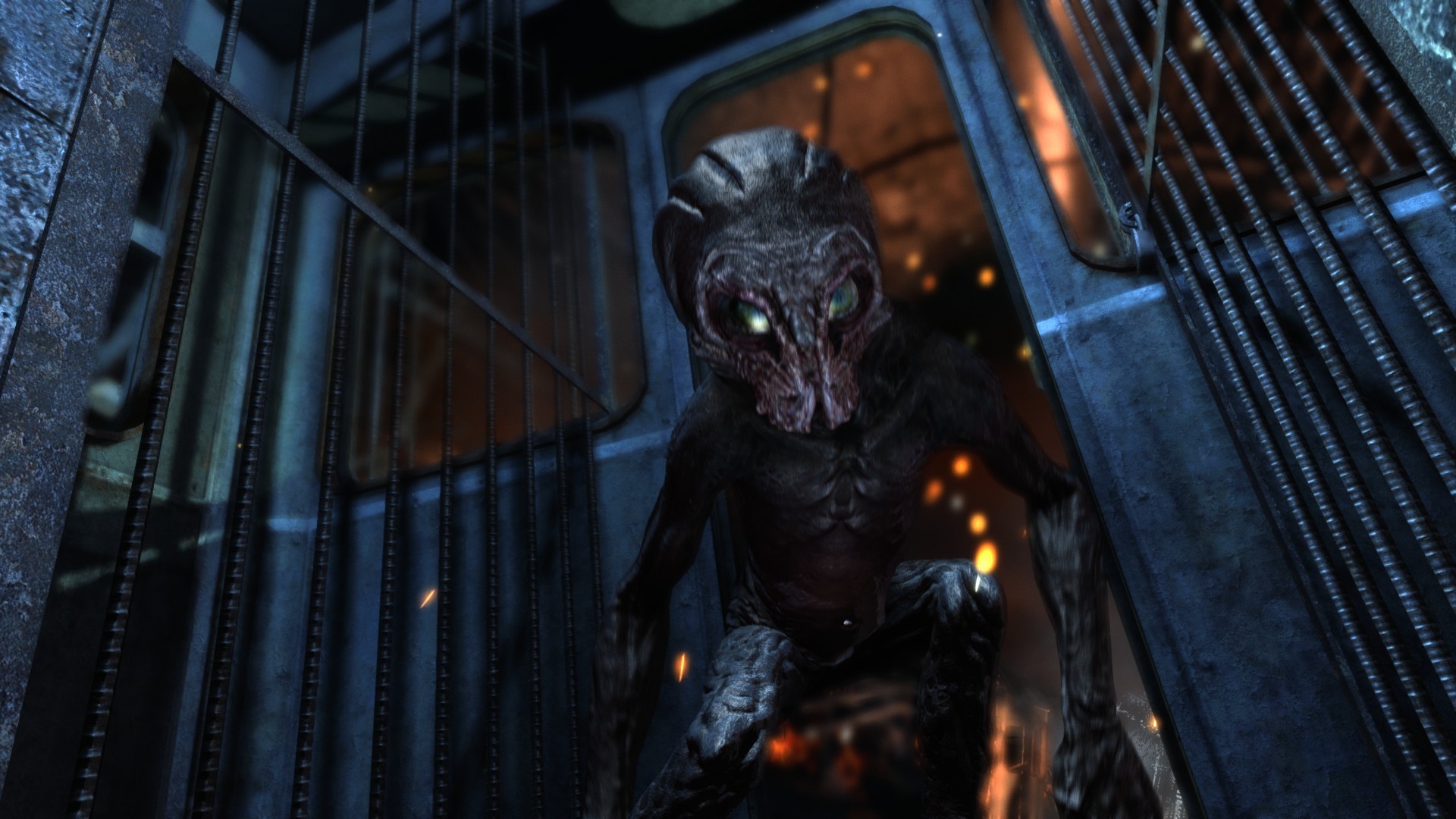

It's an incredibly well-fleshed fiction, and Last Light's most tremendous success is the way that it communicates this world, visually and narratively. Nazis and Communists have carved out portions of the railway system for themselves, one establishing a Fourth Reich bent on eradicating mutation, and the other the Red Line: a literal line of track that bisects the entire subway system. Worst of all, other human factions tussle over the scant resources, or vie for Metro-wide domination. "Human factions tussle over the scant resources, or vie for Metro-wide domination" Human existence here is precarious, and even a short trip between pockets of civilisation feels suitably dangerous: dereliction and nuclear destruction have left the tunnels in a bit of a shabby state, while gruesome mutants stalk the black halls and the sad, shattered city above is haunted by things even weirder and more worrisome still. What then follows is a nightmare version of Mornington Crescent, taking Artyom on a circuitous round-trip through the desolate tunnels of the Moscow subway system, along underground rivers, into military bunkers and other even darker places. Because of the stigma attached to being a telepathic death beast, not everyone is convinced of their benevolence, and when one is discovered to have survived the holocaust, you're dispatched to kill it. Secondly, Artyom has just used the missiles within D6 to commit genocide, obliterating a race of benign mutants who had the poor luck of being 12-foot-tall wormy-mouthed psychic ape-monsters whose mere presence causes men to die in terror and pain. Two important things have happened: with Artyom's help the Order has located and taken control of D6, an experimental weapons facility likely to become the envy of the Metro's other warring factions. You once again play Artyom, now a newly minted member of the Order – a sort of subterranean Night's Watch, formed from ex-Spetsnaz soldiers.
.jpg)
Set in the nuclear-shielded Moscow subway system following a devastating global war, Last Light's story picks up where Metro 2033's ended. "It describes humanity with a degree of success that few games of any genre achieve."


 0 kommentar(er)
0 kommentar(er)
